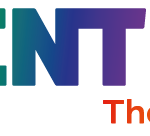A new survey conducted by PebblePad in partnership with Student Pages has found that half of 17-24 year olds in higher education surveyed are already using OpenAI’s language model, ChatGPT, to support their studies. However, the survey revealed that students are not using the AI-powered tool to replace writing or research skills, but to complement and enhance their learning experience.
The first-of-its kind UK study into student views on the nascent technology shows that a significant majority of students who use ChatGPT (58%) reported experiencing more efficient learning, indicating that the AI-powered tool is helping them save time by streamlining research and planning, as well as reducing administrative burdens.
Encouragingly, only a small number of respondents (4%) reported using or planning to use AI tools for writing their assignments and just 15% of students believed that ChatGPT facilitated cheating on exams and assignments. Instead, the survey found that the majority of students (62%) believe that AI tools can help them structure their essays and streamline the writing process.
However, while the survey’s results suggest that ChatGPT is gaining ground as a useful tool to support learning, there is still much to be explored in terms of the responsible use and potential risks associated with AI-powered tools in education.
When asked about the risks of AI-powered tools in education, 37% of students were worried about privacy and security concerns.
Alison Poot, Senior Director, Global Customer Success at PebblePad: “It’s clear from our survey that students are embracing AI-powered tools like ChatGPT to support their learning, not to outsource elements, and not intending to cheat. The fact that most respondents said they use ChatGPT to structure their essays demonstrates how the tool is being used as a support mechanism, rather than replacing core skills like writing or research.”
Kenny Nicholl, Chief Operating Officer at Pebble Pad adds, “The use of ChatGPT in Higher Education reinforces the importance of co-creation with students, particularly when it comes to assessment. When students are involved in the design process, they are invested in the task, have a better understanding of what they need to demonstrate and how it’s measured, which reduces the likelihood of them using tools like ChatGPT inappropriately.”
He adds, “Furthermore, it’s essential to remember that, for the most part, students don’t intend to cheat. In many instances, inappropriate use of technology is a result of a lack of understanding or guidance. Therefore, educators play a crucial role in demonstrating how to use ChatGPT appropriately to avoid inadvertent cheating and to ensure a fair and equitable learning environment. By providing guidance and support, educators can ensure that students use ChatGPT effectively, to enhance the learning experiences.”
Gareth Rifkin, editor of Student Pages, commented on the findings, saying, “It’s encouraging to see that students are using ChatGPT to support their learning, rather than replacing essential skills like writing and problem solving. The fact that a majority of students reported more efficient learning with the tool is a testament to its value in education. However, the results also highlight the need for continued conversation around the responsible use of AI-powered tools in education and the potential risks they may pose, such as facilitating cheating.”















